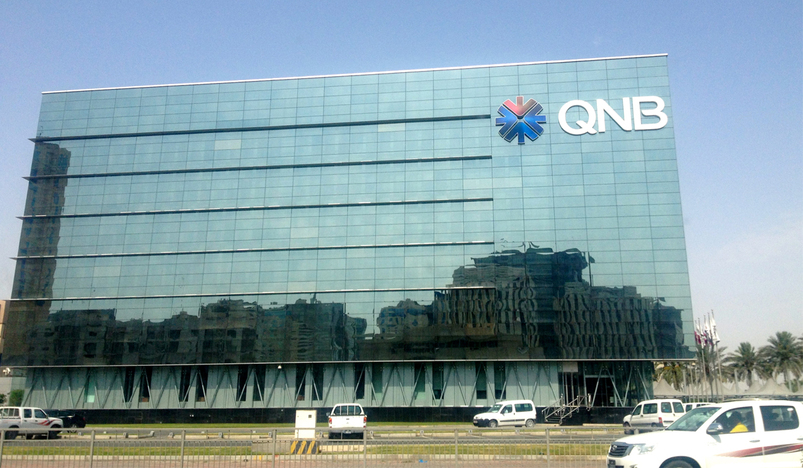
QNB
QNA
High and rising levels of vaccination are allowing a fragile economic recovery to become more robust in the Euro area, QNB Group said in its weekly economic commentary issued Saturday.
QNB said that the strengthening recovery, whilst more modest than in the US, has been supported by new, but temporary, emergency fiscal and monetary policy tools. QNB expects GDP growth to continue to strengthen, and for inflation to remain elevated for the rest of the year, before moderating in 2022. Hopefully Euro area policymakers can take the lessons learnt during the pandemic and embed new policy tools to help strengthen the long-term outlook.
The Group noted that tight restrictions were necessary to arrest a winter surge of COVID-19 infections earlier in the year, but also led to weaker economic activity across the Euro area. Fortunately, rising vaccination rates have already substantially reduced the number of active COVID-19 cases. Governments are already beginning to ease restrictions, and consumers are eager to take advantage of life without confinement.
QNB analysis considered the outlook for economic activity, inflation, monetary policy and fiscal policy across the Euro area. In terms of economic activity, the Euro area economy had a weak start to 2021, with GDP contracting by 0.6% in the first quarter of the year compared to the fourth quarter of 2020.
Retail sales fell by 3% in April compared to March as restrictions were re-imposed to fight a third wave of Covid-19 infections. However, the combination of more rapid vaccination rates and the restrictions have already led to a visible decline in the number of infections. This has allowed governments to begin lifting restrictions, with particular benefits for the hospitality and retail sectors activity.
Consumer confidence indicators show that consumers are willing to spend. QNB expected accumulated savings to help fuel consumption as restrictions are lifted. Indeed, forward-looking data indicate a rebound in consumption, with the reopening of the hospitality and retail sectors expected to benefit tourism hotspots in particular. The services purchasing managers index (PMI) has risen strongly during the summer months, soaring to 62.5 in Spain in June.
In terms of inflation, QNB said that consumer prices (CPI) have risen rapidly so far this year, driven by higher energy prices. Indeed, the ECB has acknowledged that inflation has picked up more than expected and raised its forecast for headline inflation to 1.9% in 2021. However, the pick-up in inflation is expected to be transitory, constrained by low wage growth and the past appreciation of the Euro limiting imported inflation. As a result the ECBs projection is for inflation to fall back to 1.4% in 2023, well below target and pre-pandemic projections.
In terms of monetary policy, the ECB continues to provide substantial monetary stimulus to maintain easy financial conditions. The ECB announced an increase and further extension of its pandemic emergency purchase program (PEPP) in December. It has committed to asset purchases of up to EUR 1.85 trillion of bonds until March 2022, and to reinvest principal payments until end-2023.
The ECB is committed to maintaining a high level of asset purchases to prevent bond yields rising and undermining financing conditions whilst the recovery still remains fragile. QNB expected the pace of asset purchases to be maintained at EUR 75 billion per month until September 2021. This slight reduction in pace is simply because Euro area governments typically issue less debt during the summer and the ECB doesnt want to overwhelm bond markets. The report foresees a reduction in pace to EUR 65 billion, as the economic recovery becomes more robust.
The ECB recently reviewed its strategy, shifting to a symmetric target of 2% inflation announced in July 2021. This is a relaxation relative to the previous target of inflation below 2%. Looking forward to September 2021, QNB expected stronger "forward guidance" to be announced, with the ECB committing to keep monetary policy highly accommodative. This would facilitate a tilt towards returning to its pre-pandemic instruments to maintain support rather than depending upon emergency tools.
With regard to fiscal policy, QNB said that it is important to bear in mind the interaction between monetary and fiscal policy. In particular, the PEPP provides fiscal space for high levels of governments debt issuance. This has helped to lower the risk premium in bond yields between countries in northern Europe with low yields, and countries in southern Europe with higher yields.
In addition to normal fiscal policy support by individual member states, the Recovery Fund (RF) is part of NextGenerationEU (NGEU) a EUR 800 billion temporary instrument. It is intended to help repair the immediate economic and social damage brought about by the coronavirus pandemic. Debt issuance has already started for the RF and QNB expected disbursements to begin during the summer. The RF will have particularly large benefits for southern European economies and is expected to boost activity by 5% of GDP in Italy and Spain by 2026.
.jpg)
Qatar Secures Place Among the World's Top 10 Wealthiest Nations
.jpg)
Hamad International Airport Witnesses Record Increase in Passenger Traffic

Saudi Arabia: Any visa holder can now perform Umrah

What are Qatar's Labour Laws on Annual Leave?
Leave a comment